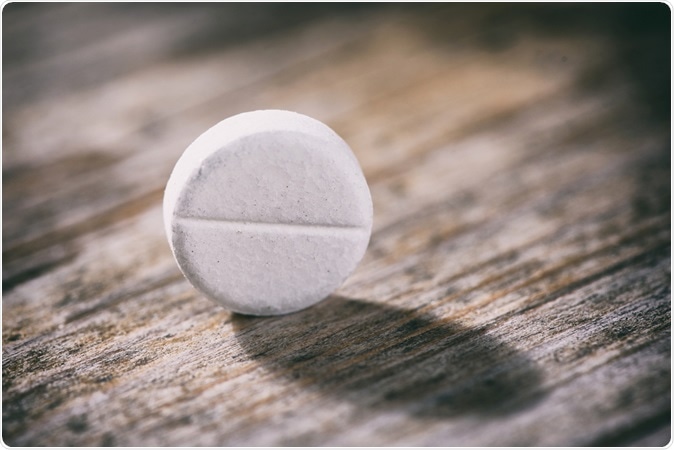Aug 27 2018
By Dr Ananya Mandal, MD
Low dose Aspirin has been advocated to reduce the risk of a second heart attack or a stroke or other heart problems in persons who have had one episode.
A major new study published in the Lancet, has found that taking Aspirin to prevent the first heart attack fails to work. In fact the risks of taking low dose Aspirin to prevent the first heart attack outweigh the benefits.

Image Credit: Spaxia / Shutterstock
There have been numerous studies on the prophylactic and protective effect of this low cost medication. While certain studies have shown that it can prevent first strokes or heart attacks in persons who are at a moderate risk of heart attacks and strokes, some studies have not shown significant benefit.
Aspirin has also been tested in people with cardiac disease risk factors such as diabetes, high blood pressure, smoking, high cholesterol etc. In diabetes for example Aspirin intake on a regular basis may offer some protection against heart attacks or strokes but the risk of serious bleeding as a side effect of the drug remains high. Aspirin was also purported to have anti-cancer or cancer preventing properties. This has also been negated in studies. In the studies the researchers have used 100 milligrams per day.
Study leader Dr. Jane Armitage of the University of Oxford in England said, “There's been a lot of uncertainty among doctors around the world about prescribing aspirin. If you're healthy, it's probably not worth taking it.” The study was presented this Sunday (26th August 2018) at the European Society of Cardiology meeting in Munich.
In this latest study, the team of researchers from Boston used aspirin or placebo pills on 12,546 participants. These participants had a moderate risk of suffering a heart attack or stroke and other health problems. The participants were followed up for five years and it was seen that 4 percent persons in each group had a heart problem. These participants took medications for lowering blood pressure and cholesterol explained Dr. J. Michael Gaziano of Brigham and Women's Hospital. Side effects such as internal bleeding or stomach bleeding, was mild but seen twice as much with Aspirin than the placebo pills. Aspirin users also complained more of reflux, abdominal pain, indigestion etc. This new study was sponsored by Bayer.
Low dose aspirin/fish oil supplements in diabetics
In yet another study, researchers from Oxford, randomly assigned 15,480 adults with Type 1 or 2 diabetes with aspirin or 1 gram of fish oil, both the aspirin and fish oil or placebo pills. The pills were administered each day.
The participants were followed for seven and a half years. Heart problems were lower among aspirin users. The risk of bleeding however was raised with aspirin. Fish oil supplements did not help though said study leader Dr. Louise Bowman of the University of Oxford. This study was published by the New England Journal of Medicine.
The British Heart Foundation sponsored the study. Bayer and Mylan provided aspirin and the fish oil supplements, respectively.